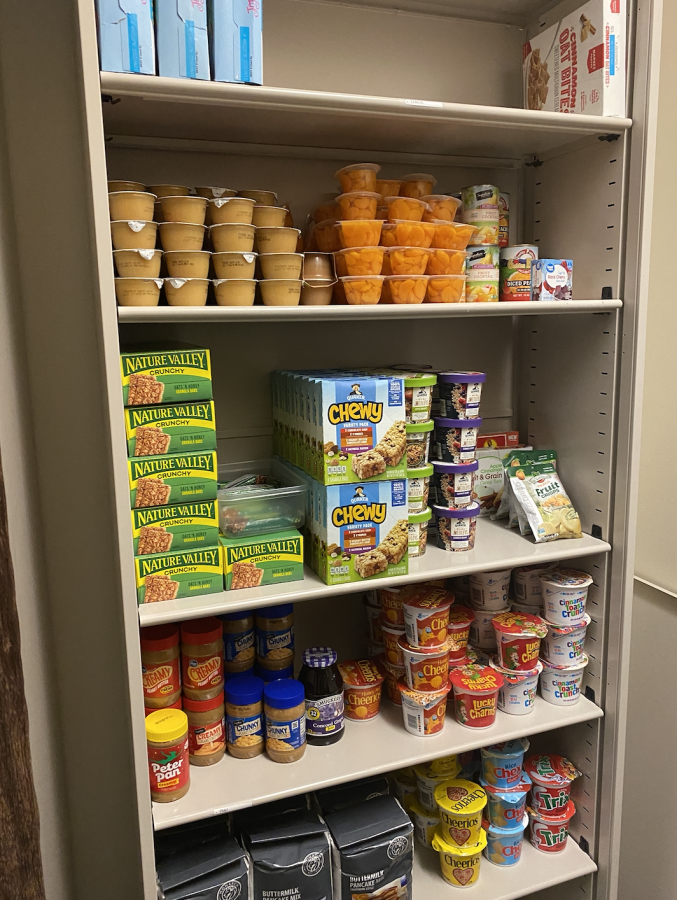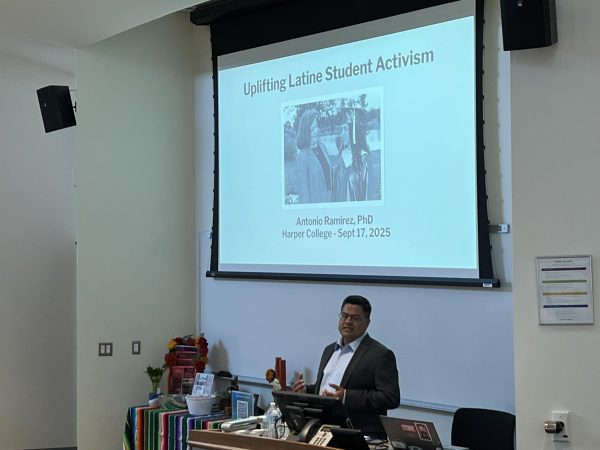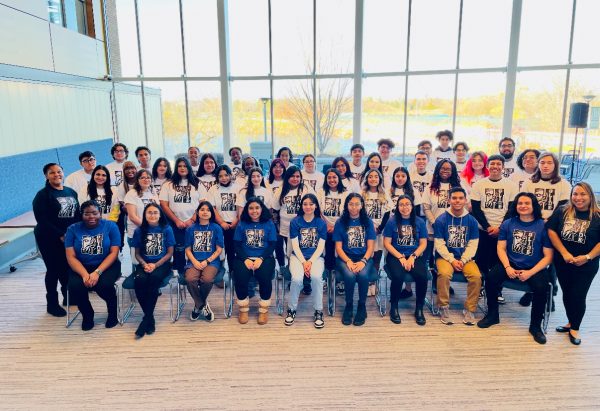Hawks Care undergoes changes to help students during pandemic
Hours spent frantically studying, the constant stress of upcoming exams and late, sleepless nights – these are scenarios most college students experience but imagine if they weren’t your only stresses.
Instead, you also worry about having food to eat, finding a place to stay for the night and wondering if you can afford to pay for your classes. This is a harsh reality for some students here at Harper College.
In response, Harper created a program called Hawks Care which has been helping find the best ways for students to have their basic needs met in order to focus on their academic goals.
A lot of their services include connecting students to resources both within and outside Harper such as medical care, housing programs and local food pantries.
In its goal to meet these needs, Hawks Care has undergone some major changes in light of the pandemic, growing in a way that allows them to both reach more students and provide them with even better care.
When the pandemic hit, like many other establishments at Harper, Hawks Care underwent some difficulties. Financial resources were limited, and students could no longer receive the hands-on support they once did.
Current Operations Manager for Hawks Care Resources Cindy Washburn explained how there was a very limited amount of gift cards available to assist students financially, while in-person meetings were reduced to phone call check-ins by Harper’s counseling team.
Even though Hawks care couldn’t fully operate, there were still students from Harper ready to volunteer and offer help in their local communities, one of them being 18-year old Grant Saam who volunteered at Living Hope Church’s food pantry earlier this year.
“During the pandemic, there were a lot of limited opportunities to volunteer, so I came across serving at Living Hope Church and thought I’d like to assist the church and help out the food pantry,” Saam said. “It felt good going there and helping out; especially during the pandemic, you still have a lot of people impacted heavily.”
It was at the start of this semester that Hawks Care was able to go back on campus, officially acquiring a team and becoming its own center.
It currently consists of Washburn, who has a master’s degree in counseling, and Resource Specialist Meghan Crotty, who is a licensed clinical social worker. Both women utilize their professional backgrounds to better understand and work with the students they help.
One of their main goals is to normalize students asking for help.
“Students using Hawks Care are Harper students — many of them have jobs and family responsibilities in addition to their coursework. They’re working extremely hard and are humbled at asking for and receiving help,” Washburn explained. “Providing a judgment-free place to talk about those struggles to get support and information helps normalize help-seeking and reinforces that it is OK to ask for help. “
Making students feel comfortable is a high priority for both Washburn and Crotty, especially as Hawks Care continues to grow. Crotty explained how important it is to make students feel at home when they visit.
“It’s really just taking the time to build that relationship with a student, even if it’s a short time,” Crotty said.
Making sure students receive the best quality resources is also a main priority, which has been greatly aided by Harper.
“We know that there’s a lot of need, so that’s an ongoing conversation about how to make this level of support sustainable, and the campus is dedicated to making sure we can provide this support,” Washburn said.
As a result, new additions have been added to Hawks Care like the food pantry located in Building I. Funded by donations, the pantry provides non-perishable food items along with other necessities like coats, toiletries and school supplies.
Crotty explained that their main goal is to make sure students feel like they’re receiving the same quality products that they would in any other grocery store because they deserve no less.
Additionally, the Trellis survey acts as a great way to decipher the financial wellness of current students and see where they struggle.
First conducted in 2019, the results indicated that 66% of students worry about having enough money to pay for school, and 70% say they would use financial support services if offered by their school.
The same survey is currently being conducted for the 2021-2022 school year following the pandemic to target where students need help as some needs have become more prominent.
“Housing is a huge topic for a lot of individuals right now, whether it’s looking for housing or financial assistance for it,” Crotty explained.
Organizations like Northwest Compass and Fellowship Housing help assist with these issues by offering rental and food assistance along with other basic needs.
Crotty iterated that by forming these connections with outside organizations for students and “showing them what else is out there and just giving them more resources to be more successful once they leave Harper” is how Hawks Care can really set them up for the future.
Both Washburn and Crotty understand that the population of students in need at Harper is always there and hope that in the future more students will reach out no matter who they are or the size of their problem.
“I think it is easy to think that individuals in need “look” a certain way when the reality is that everyone struggles at different times and in different ways,” Washburn said.
Hawks Care is here to help with a new team that only wants the best for the students of Harper College.
“We’re doing great work with what we have — it can only get bigger from here,” Crotty said.







